Types of Biological Research
There are several types of research in biology, including:
- Basic Research: This type of research aims to expand our understanding of fundamental biological concepts and mechanisms. It often involves studying specific molecules, cells, or organisms to uncover new insights.
- Applied Research: Applied research focuses on using biological knowledge to address practical problems or develop new technologies. Examples include developing new medical treatments, improving agricultural practices, or designing environmental conservation strategies.
- Field Research: Field research involves conducting studies and collecting data directly from natural environments, such as ecosystems, forests, or marine habitats.
- Laboratory Research: Laboratory research takes place in controlled settings, such as research facilities or universities, and often involves experiments using model organisms or cell cultures.
The Research Process
The research process in biology typically involves the following key steps:
- Identifying the Research Question: Defining a clear research question or hypothesis is the first step in any research endeavor. This question guides the direction of the study and provides a focus for the investigation.
- Reviewing Existing Literature: Before conducting new research, it's essential to review the existing scientific literature to understand what is already known about the topic and identify gaps in knowledge.
- Designing the Study: Researchers must carefully plan the methodology for their study, including the selection of appropriate experimental techniques, sampling methods, and data collection procedures.
- Collecting Data: This step involves gathering relevant information or specimens that will be analyzed to address the research question. Data collection methods can vary widely depending on the specific research goals.
- Analyzing Data: Once the data is collected, researchers use statistical and analytical tools to interpret the results and draw meaningful conclusions.
- Communicating Findings: Finally, researchers share their findings with the scientific community through publications, presentations, and conferences, contributing to the collective knowledge in the field.
Study Guide: Conducting Biological Research
If you're interested in conducting your own biological research, consider the following steps:
- Select a Research Topic: Choose a specific area of biology that interests you, such as genetics, ecology, or physiology.
- Formulate a Research Question: Develop a clear, testable research question that aligns with your chosen topic.
- Review the Literature: Conduct a thorough review of scientific articles, books, and online resources related to your research question to understand the current state of knowledge in the field.
- Design Your Study: Determine the experimental or observational methods you will use to address your research question. Consider factors such as sample size, data collection techniques, and potential variables that could impact your results.
- Obtain Necessary Permissions: If your research involves human subjects, animals, or sensitive environments, ensure that you obtain the appropriate ethical and legal permissions before beginning your study.
- Collect and Analyze Data: Conduct your experiments or observations, collect data, and use appropriate statistical analysis to interpret your results.
- Draw Conclusions: Based on your findings, draw conclusions that address your research question and consider their implications for the broader field of biology.
- Communicate Your Results: Share your research findings through presentations, reports, or publications to contribute to the scientific community.
[Research] Related Worksheets and Study Guides:
.◂Biology Worksheets and Study Guides High School. Human biology II
Worksheet/Answer key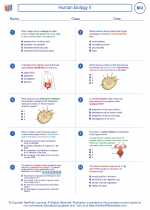 Human biology II
Human biology II  Worksheet/Answer key
Worksheet/Answer key Human biology II
Human biology II  Worksheet/Answer key
Worksheet/Answer key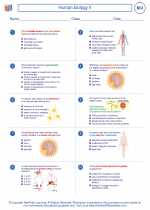 Human biology II
Human biology II  Vocabulary/Answer key
Vocabulary/Answer key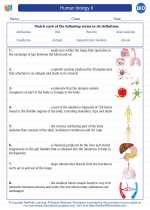 Human biology II
Human biology II  Vocabulary/Answer key
Vocabulary/Answer key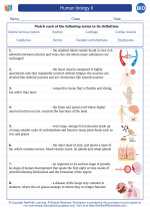 Human biology II
Human biology II  Vocabulary/Answer key
Vocabulary/Answer key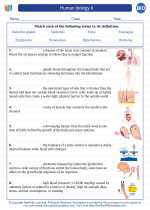 Human biology II
Human biology II  Vocabulary/Answer key
Vocabulary/Answer key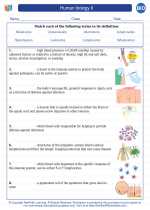 Human biology II
Human biology II  Vocabulary/Answer key
Vocabulary/Answer key Human biology II
Human biology II  Vocabulary/Answer key
Vocabulary/Answer key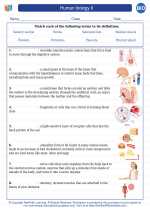 Human biology II
Human biology II  Vocabulary/Answer key
Vocabulary/Answer key Human biology II
Human biology II 

 Worksheet/Answer key
Worksheet/Answer key
 Worksheet/Answer key
Worksheet/Answer key
 Vocabulary/Answer key
Vocabulary/Answer key
 Vocabulary/Answer key
Vocabulary/Answer key
 Vocabulary/Answer key
Vocabulary/Answer key
 Vocabulary/Answer key
Vocabulary/Answer key
 Vocabulary/Answer key
Vocabulary/Answer key
 Vocabulary/Answer key
Vocabulary/Answer key
 Vocabulary/Answer key
Vocabulary/Answer key

The resources above cover the following skills:
LIFE SCIENCE (NGSS)
From Molecules to Organisms: Structures and Processes
Students who demonstrate understanding can:
Develop and use a model to illustrate the hierarchical organization of interacting systems that provide specific functions within multicellular organisms.
Plan and conduct an investigation to provide evidence that feedback mechanisms maintain homeostasis.